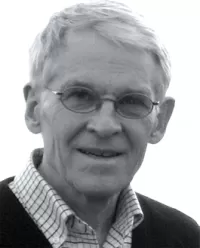Pushing or Pulling Behavior?
Are our actions determined by the past or by the future? We often speak of implementing plans, looking to the future, and having goals in mind. Our behavior is said to have purpose and intention, to be pulled toward whatever future events we “have in mind.” Yet, all scientists, including behavior analysts, subscribe to the idea that causes come before effects, not after. If we accept this, then it is not possible to explain our present actions in terms of things that have not yet happened. Explaining behavior by referring to its future consequences is called a teleological explanation, and it really doesn’t explain anything
Our behavior is more reasonably described as being pushed by the past, rather than pulled by the future. A rat presses the lever not “to get food” – that description puts the reason for the rat’s behavior in the future – but rather because it has a history of reinforcement for pressing the lever. We do as we do and are as we are because of our unique experiences, and our shared cultural experiences. These experiences constitute our behavioral histories.
If behavior is pushed as I suggest, how do we account for the common ways of talking about purposes, goals, and intentions? Or for the fact that B. F. Skinner himself (in his book About Behaviorism) once famously observed that “[o]perant behavior is the very field of purpose and intention”?
Our goals, purposes, and intentions are usually in the form of verbal statements: “I will go to the grocery store”; “I’m gonna get me a beer and a smoke”; “I intend to finish school by the time I am 24”; “My goal is to ace this class.” In our past, stating goals or having them stated by others, has resulted in reinforcement. Thus, these verbal statements come to function as discriminative stimuli, stimuli that set the occasion for our behavior to be reinforced. Telling ourselves or others what our goals are can serve as a stimulus that, metaphorically speaking, pushes our behavior in certain directions. It is controlled not by what might be in the future, but by what has been and what is now. Such behavior sometimes is described as being rule governed.
But, what about Dr. Skinner? In light of what I have been saying, shouldn’t he know better than to talk like that? Read his book - he’s making a point. He’s saying that the things that interest him as a behavioral scientist are the very things that people often describe as being determined by their purposes or intentions. It’s just that, on closer examination, as I illustrate above, what we call purposes, intentions, and goals can be turned around so that the behavior leading to them is really more usefully viewed as pushed, rather than pulled.



